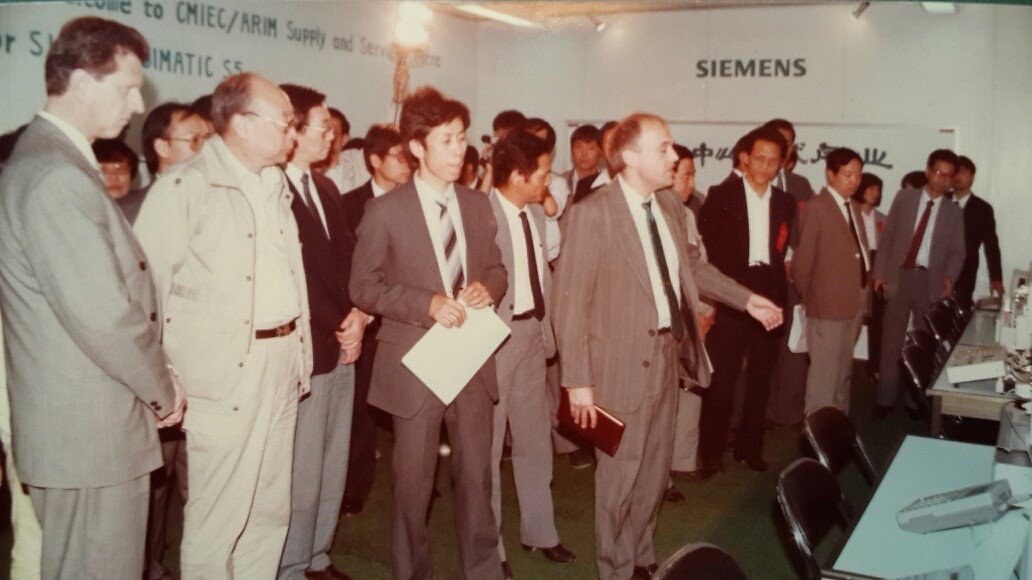Successful selling in the Process Industry- Greenfield and Brownfield Projects approach
by Ulrich Seidl
Successful selling of Products, Systems, Solutions, and
Services in the Process Industry does not come from merely
gathering market information to fill the sales funnel, nor
from attending sales trainings filled with value proposition
guidelines, case studies, mental exercises, or CRM
strategies, to name just a few. Instead, success in
this field is achieved through a deep understanding of
the industry, its stakeholders, and a strong belief in
the products and solutions offered—ensuring they meet
the customer’s needs in terms of technology, pricing,
and support. Additionally, consistent daily follow-ups
are essential until the sale is successfully closed.
The sales in the Process Industry revolves around both
Greenfield and Brownfield Projects. In the Chemicals Industry, for
instance, Brownfield Projects—investments in existing facilities such
as expansion projects—are often the most straightforward way to generate
revenue, as plant owners and their project teams tend to prefer products
and systems that are already installed. The success rate of offering a
different set of products or systems from the existing installation is
generally low. These projects are frequently managed by the plant's
internal project or engineering team, or by local solution providers.
It’s important to note that there are often close, personal relationships
between the owner’s project team and the solution provider, which often
results in expansion projects being awarded to local partners.
Spare parts are generally ordered directly from the manufacturer,
provided that the suppliers are vendor-listed, have clearly defined
contractual terms and conditions, and demonstrate a positive and
consistent performance in delivering vendor-listed products, systems,
and services. In many cases, especially in the Chemicals Industry,
required products are ordered through a supplier portal, which serves
as an interface to streamline transactions for both the buyer and the
supplier. It is the responsibility of the sales team to monitor the
portal daily, ensuring that orders are processed promptly and that
the delivery performance of required products and services remains
high, ideally above 80%.
Being vendor-listed at large accounts is one of the most
important and challenging tasks for any sales organization.
The qualification process can be quite complex and time-consuming,
often involving the allocation of sample products and systems,
as well as organizing reference site visits across the globe.
Greenfield Projects (investments in new facilities) are far
more complex and require a deep understanding of the entire certification
and procurement process, as well as the roles of all stakeholders
involved. Direct approaches to end users are often ineffective, as
large accounts typically have strict compliance regulations that
prohibit direct dealings with prospective vendors of products,
systems, and solutions.
These projects are generally divided into packages and sent to qualified
international Engineering Procurement Construction (EPC) companies.
During the feasibility study and conceptual design phase, usually
conducted by a Front-End Engineering Design (FEED) company, EPC
firms are pre-selected. Along with the Project Management Consultant
(PMC), these EPC companies are invited to tender. Engineering and
construction contractors then submit bids for the package, providing
detailed designs, construction plans, and procurement of all
necessary equipment and materials.
As a result, EPC companies play a critical role in targeting projects
within the Process Industry. Given the annual CAPEX of large accounts
in this sector, the potential for selling products, systems, solutions,
and services is enormous—posing both a significant opportunity and
challenge for any sales organization.
Sales through indirect channels, such as solution providers,
wholesalers, or distributors, can be an effective way to approach
projects—provided that suppliers of products, systems, and solutions
have a well-defined strategy paired with a consistent go-to-market
approach. Without this, channel conflicts can arise, where suppliers
switch between direct and indirect methods, disrupting their channel
partners.
Solution providers are generally not hesitant to compete with other
solution partners on a project, as long as the terms and conditions
are the same for all. However, if a supplier attempts to both sell
its products and systems portfolio to partners while simultaneously
competing against those same partners on the same project, it can
damage the relationship and trust between the supplier and its channel
partners.
Please note that the provided article is for guidance purposes only
and should not be copied, adapted, or referenced in any manner.
Essentials of a 5 Year Business Plan
Business Entry and Project Development at large Key Accounts
Successful selling of Products, Systems, Solutions and Services in the Process Industry
© solarvessel.com
√
HOME | BACK TO TOP
